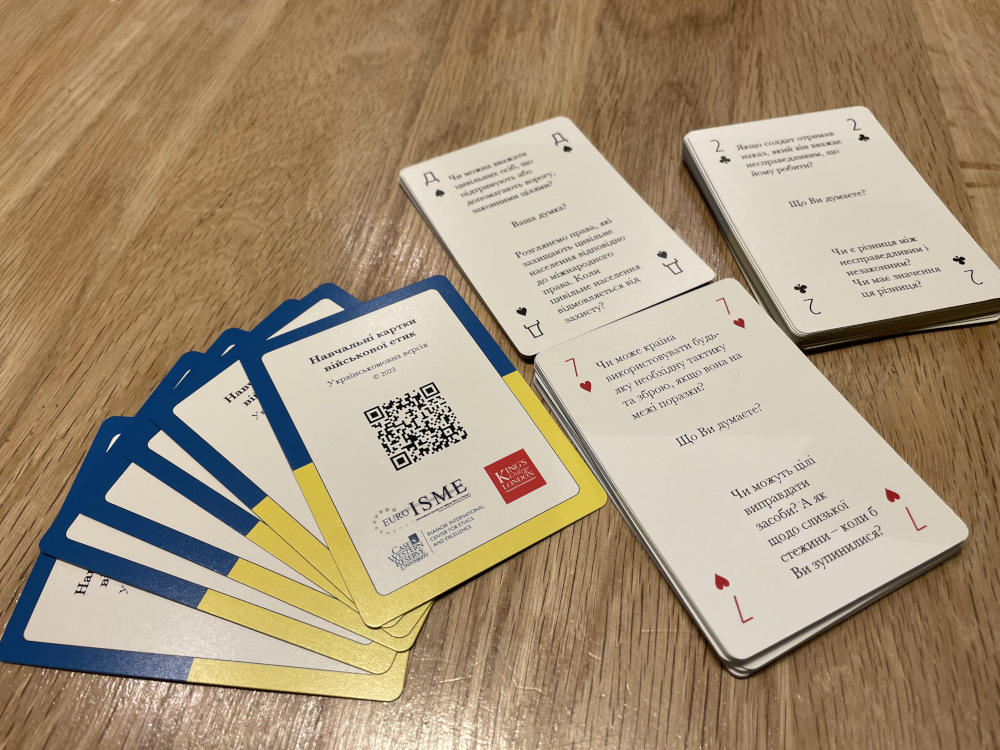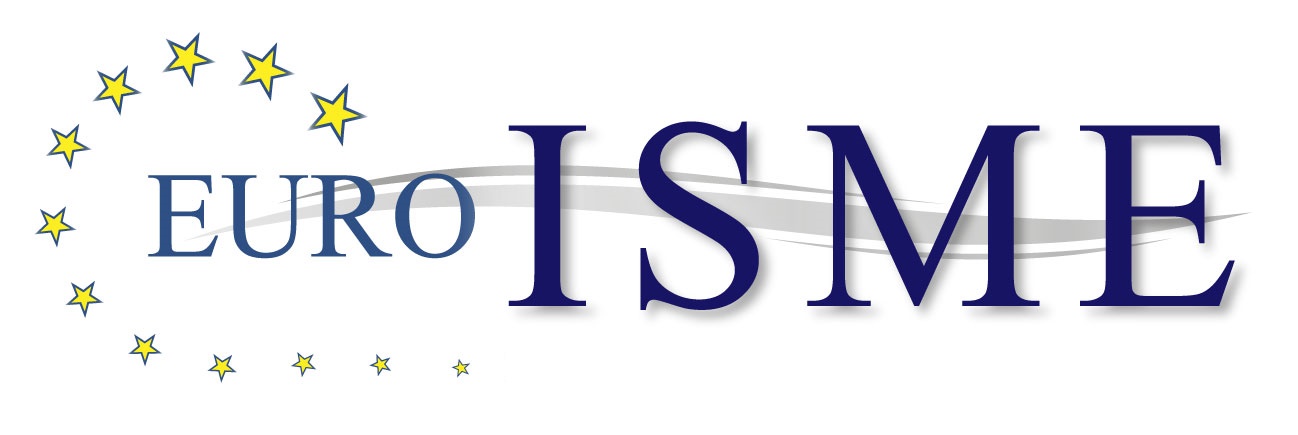Ethics Training Beyond the Classroom
There is a clear linkage between ethical behaviour within armed forces and their conduct on operations. Fostering ethical awareness and moral decision-making in military personnel is a proven way of reducing harm and suffering in conflict situations, and may have profound links to the reduction of incidents of PTSD and moral injury, but there is a lack of quality pedagogic tools for supporting development in this key area and normalising the everyday discussion of ethical considerations.

The King’s College London Centre for Military Ethics (KCME) have developed an innovative education tool to support the teaching of military ethics. Fifty-two questions from across the broad area of military ethics have been carefully developed, based on professional military ethics education curricula, in conjunction with research and testing on military focus groups, and in consultation with specialist lawyers. The questions are matched to playing cards which are available (at cost price) to military units and can be used to prompt informal discussion about the ethical challenges faced in military environments. Question include:
- Should a soldier challenge an order if they consider it to be illegal? If so, how?
- Is necessity ever a reason to break the laws of war?
- Can soldiers refuse to serve if they disagree with their government’s decisions?
To ensure an appropriate ‘take away’ from any discussion, each card has a QR web link to the KCME webpages where there are additional prompts, questions and information for each question, along with reading and articles. Groups of questions can be thematically linked so impromptu or pre-planned supported discussions can quickly be developed using the open-access material.
http://www.militaryethics.uk/en/playing-cards
In partnership with Euro ISME and Case Western Reserve University, KCME have developed an accompanying app, which is both free to download and use, is also available in multiple languages and makes the tool even more accessible.
The English version of the cards are already being used regularly by British, Australian and Canadian military units, and with assistance from international partners such as Euro ISME, the cards have been translated into a number of different languages (including Spanish, French, German, Serbian, Turkish and Arabic, and are being used in military institutions from Belgrade to Bogota. We already have significant evidence that the cards are an effective tool for enhancing existing military ethics education materials. For example, in Colombia, 881/945 respondents from the Army (93.2%) stated that they found the cards useful.
Developments
An opportunity emerged in 2022 to help make a difference by supporting the Ukrainian troops being trained in the UK. The existing military ethics materials were translated into Ukrainian, and then a partnership of KCME, Euro ISME and Case Western Reserve University have funded the printing and distribution of 500 packs of cards. This has received a considerable amount of attention in and beyond Ukraine, and we have already been asked to provide additional packs directly. The practical experience of using the cards in field conditions are already being fed back into the design and development stages so the tool can be refined and made as useful as possible.
If you would like to support our work, please consider making a donation.


